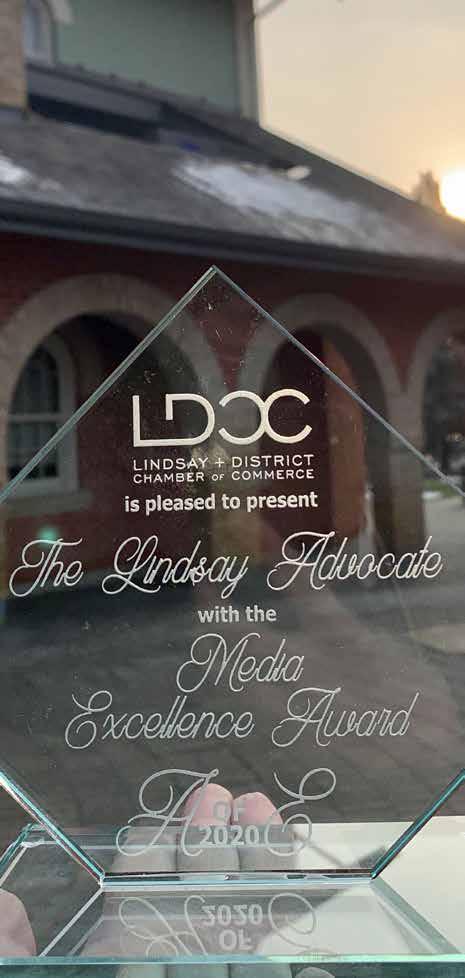Making the charitable choice }} If you’re approached on a local street for a handout, what’s the right thing to do?
NANCY PAYNE Associate Editor
David Tilley, executive director, A Place Called Home. Photo: Sienna Frost.
It’s a cold early winter day in Lindsay. The lighter grey of afternoon is darkening and the wind is picking up. The woman is probably in her early 30s. Her long brown hair is topped with a patterned tuque and her coat is unzipped over a sweater. She approaches with purpose but without aggression across the grocery store parking lot. “Excuse me, but could you spare some change for the bus?” Running into a situation like this in Toronto is one thing, and over the past few years, it’s become increasingly common even in Peterborough. But in Lindsay? Panhandling is unusual enough here that this particular appeal — a true story, by the way — lingers in the mind long after it’s over.
www.lindsayadvocate.ca
After all, this is a small, close-knit community where everyone knows everyone and we look after each other. So encountering someone begging for money feels more shocking here, somehow, and not so easy to brush off. Should you give the woman money or not? It’s easy to be paralyzed when it feels like there’s no right answer. On the one hand, you don’t really believe the thing about the bus, and can’t help but suspect that the purchase is more likely to involve something that makes you uncomfortable. On the other, you just dropped $150 on groceries, so it seems just plain mean not to hand over a paltry toonie. But even if you did, what difference could a few dollars possibly make? CONT’D ON PAGE 20
19







